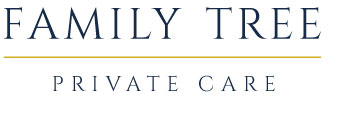11 Feb Heart Attacks in Seniors and How to Move Forward After One
What Is a Heart Attack?
Our hearts are one of the most vital parts of our body. They’re the engine pumping blood throughout our circulatory system that keeps us alive. When we are excited, or scared, or in love, they seem to race within our chests letting us know we’re alive. When taken care of, they give us a lifetime of faithful service.
But What Happens When Something Goes Wrong?
A heart attack, or myocardial infarction, is one of the scariest things that can happen to us or someone we love, especially if they are a senior. A heart attack occurs when the blood flow supplying oxygen to the muscle is cut off. If one or more of the coronary arteries supplying the heart become blocked, the muscle of the heart cannot get enough oxygen and begins to die. The arteries often become blocked due to plaque build-up within them which ruptures and causes a blockage. In order to avoid future heart attacks, the blockage must be removed either with medication or surgery.
What Are the Warning Signs of a Heart Attack?
You may wonder, how will I know if I or my loved one is having a heart attack? Not all heart attacks will look as dramatic as you may expect, so there are several warning signs to watch for and recognize.
- Discomfort or Pain in Your Chest – A feeling of pressure, squeezing, fullness, or pain located inside your chest that seems to last for several minutes is one sign to watch for. The pain may go away and return at frequent intervals.
- Upper Body Pain – Pain in your arms, back, neck, jaw, or stomach can also be a warning sign of a heart attack.
- Shortness of Breath
- Fatigue – If you are feeling fatigued or lightheaded with sudden dizziness or break out in a cold sweat these are all warning signs to watch for.
- Nausea
Remember, there are also key differences in how men and women experience heart attacks. While both men and women are likely to report chest pain and discomfort, women experience shortness of breath, nausea, vomiting, and pain in the back or jaw more often than men.
How Do I Know If I’m at Risk for a Heart Attack?
One of the most common risk factors for a heart attack is age. Men over the age of 45 and women over the age of 55 are more likely to suffer a heart attack than younger individuals. If you or your loved one is a senior who has suffered a heart attack, in-home care may be an option to consider. Family Tree In-Home Care offers private nursing and caregiving to seniors who have suffered a heart attack and can help care for them going forward so that it doesn’t happen again.
Other Risk Factors for a Heart Attack Include:
- High Blood Pressure
- High Cholesterol Levels
- Obesity and Diabetes
- Long term smoking or exposure to second-hand smoke
- Sedentary lifestyle or lack of physical activity
- Family history of heart attacks
- Stress levels
- Metabolic Syndrome
- A history of Preeclampsia
- Drug use
- Suffering from an autoimmune condition
What to Do After a Heart Attack
If you are a senior who has suffered a heart attack or you have a loved one who has, then it may be time for professional help. At Family Tree In-Home Care, our staff is experienced in providing long and short term assistance to those recovering from heart attacks. Our private nursing staff and professional caregivers can help you make the lifestyle changes necessary to avoid a second heart attack going forward while recovering from the one you just had.
- Medication – Family Tree’s trained caregivers can help your loved one remember any and all medications they should be taking after a heart attack for blood pressure and heart health. Our private nursing staff will see to it medication is taken as frequently as needed an on a strict schedule.
- Meal Planning and Diet Changes – Many of the indicators of a heart attack are linked to diet. If you or your loved one is overweight or struggling with diabetes, a change in your diet could make all the difference in the world going forward. Family Tree will help plan and prepare meals for you and can even assist with grocery shopping to make sure you have all the necessary ingredients and heart-healthy snacks.
- Lifestyle Changes – A sedentary lifestyle is a silent killer. It’s time to get up and get active and Family Tree can help you do that. Whether it’s a daily walk around the park or yoga in the house, our nursing staff can provide encouragement and assistance as well as company while you become accustomed to these changes in your lifestyle. We promise you won’t regret becoming more active!
Call Family Tree In-Home Care today to talk about in-home caregiving or private nursing options that are right for you.



